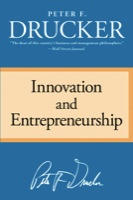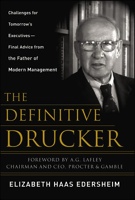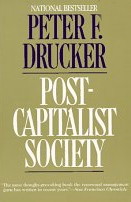Thursday, October 27, 2011
Congressional Reform Act of 2011
I don't know who wrote the following but it sure sounds good:
1. No Tenure / No Pension. A Congressman collects a salary while in office and receives no pay when they are out of office
2. Congress (past, present & future) participates in Social Security. All funds in the Congressional retirement fund move to the Social Security system immediately. All future funds flow into the Social Security system, and Congress participates with the American people. It may not be used for any other purpose.
3. Congress can purchase their own retirement plan, just as all Americans do.
4. Congress will no longer vote themselves a pay raise. Congressional pay will rise by the lower of CPI or 3%.
5. Congress loses their current health care system and participates in the same health care system as the American people.
6. Congress must equally abide by all laws they impose on the American people.
7. All contracts with past and present Congressmen are void effective 1/1/12. The American people did not make this contract with Congressmen. Congressmen made all these contracts for themselves.
Serving in Congress is an honor, not a career. The Founding Fathers envisioned citizen legislators, so ours should serve their term's, then go home and back to work.
THIS IS HOW YOU FIX CONGRESS!!!!! If you agree with the above, pass it on.
Saturday, September 17, 2011
More fiddling, more disappointments …
An article on a major local news site summarized statements by the CEO of an organization promoting startups. The CEO stated that our relatively small state economy was well positioned to becoming a leading entrepreneurial ecosystem in the country and that our state officials understand that fostering entrepreneurship will drive economic prosperity.
Putting our eggs in this basket is very likely to turn out the same as previous "Economic and Community Development" initiatives which have produced little relative ranking change. Our state is not a world-class super-power and is not going to be one.
The real fundamental problem is that these brains are living in yesterday and aren't willing to do what it takes to prepare for the road ahead. They talk and write as if they have no idea what economic development is. The idea of community may not be what it once was. Everything depends on the content of the human brain—knowing what to pursue and do in an unfolding world.
Amazon link: Innovation and Entrepreneurship
Monday, September 12, 2011
Who innovates? Who is an entrepreneur?
See my innovation summary page. How does this compare with stuff you see in the news?
Amazon link: Innovation and Entrepreneurship
Labels:
career evolution,
entrepreneurship,
innovation,
management,
PeterDrucker
Wednesday, August 24, 2011
Staying Open
From Management Alert: Don't Reform—Transform! by Mike Kami
The higher the executives' positions, the less education they seem to seek. Yet they're the ones who need it most. They should become examples to others within their organization.See book outline
The most common excuse is lack of time. That's ridiculous! Maintaining one's competence and the infusion of new knowledge are essential for better management in an era of fast change and unpredictability.
Many executives and managers are arrogant. They actually believe they know it all. They have arrived and don't need to study because their jobs are to manage and lead subordinates. They rationalize that their roles are not to know the details. Other managers are willing to learn, but are so pressured by daily crises that they keep postponing their reeducation. Both kinds become dinosaurs and contribute to the decay and the eventual demise of the business.
Benjamin Disraeli wrote: To be conscious that you are ignorant of the facts is a great step to knowledge.
It would be a great step forward if executives would adopt a new mindset: to love knowledge and hate the status quo, to love technology and hate bureaucracy, to love the future and hate the past, to love speed and hate waiting, to love global and hate provincial, to love pluralism and hate uniformity!
Amazon link: Management Alert: Don't Reform—Transform!
Labels:
management
Monday, August 22, 2011
The CEOs astounding balancing act
From The Definitive Drucker
… I've touched on failure, so I should mention success. Six of Business Week's top ten fastest-growing small American companies, and seven of the ten companies that have shown the greatest equity value gains over the last five years, didn't even exist twenty years ago. This dramatic performance highlights a key challenge to CEOs: to wrest the ability to challenge assumptions and redefine the way business is done from the financial markets. Up until now, the venture capital and equity markets have served as the primary vehicles for creating new ways of doing business and even innovation—closing companies and opening new ones. Sure, shareholders liked this power, but it flies in the face of the business's need to sustain itself. Ultimately this short-term obsession with results is closing down businesses, displacing employees, and ruining communities. It is the CEO's responsibility to use his or her uniquely broad field of vision to challenge the status quo when answering the question "What is needed?" so that companies and communities can remain viable. On top of everything else, CEOs must do an astounding balancing act: They must lead the enterprise for the customers and employees and accommodate, but not bow to, the harsh demands of the stock market.
Labels:
management,
PeterDrucker
Wednesday, August 10, 2011
Consumerism is the "shame of marketing."
Despite the emphasis on marketing and the marketing approach, marketing is still rhetoric rather than reality in far too many businesses.
"Consumerism" proves this.
For what consumerism demands of business is that it actually market.
It demands that business start out with the needs, the realities, the values of the customer.
It demands that business define its goal as the satisfaction of customer needs.
It demands that business base its reward on its contribution to the customer.
That after years of marketing rhetoric consumerism could become a powerful popular movement proves that not much marketing has been practiced.
Consumerism is the "shame of marketing."
Labels:
management,
marketing
Corporate Loyalty
Published 1994
Large organizations were proud of their employees' loyalty, dedication, and morale.
These were considered the key attributes of corporate success.
Times changed.
Total employment of Fortune 500 companies is much smaller today than it was 10 years ago.
Big companies shed millions of employees.
Lifetime employment is gone in America and shrinking in Japan.
Employees are aware that job security ain't what it used to be and are concerned.
Personnel surveys show low employee morale and low job satisfaction.
What's the solution?
It's a combination of extremes: temps and core.
Manpower, Inc. is the world's largest temporary employment agency with over 600,000 available workers.
They and others dispatch 1.5 million people to do various temporary chores, three times more than a decade ago.
But that's just a small part of the 34 million people who work intermittently as self-contractors, supplementals, perdiems, lessees, and peripherals.
Part-time workers are not all laborers.
They are also doctors, teachers, lawyers, engineers, scientists, accountants, computer specialists, and veterinarians.
A small firm specializes in placing temporary CEOs, COOs, and CFOs.
Contrary to conventional wisdom, almost 90 percent of part-timers would prefer a steady full-time job.
They're the involuntary contingent.
Practicality dictates the use of part-time employees to increase organizational flexibility and reduce the break-even point.
It's called accordion management.
The advantages and disadvantages are many.
The company saves on costs of benefits, training, severance pay, and firing hassles.
The adverse effects are also obvious.
The company faces lack of loyalty, continuity, incentive career advancement, and teamwork.
The solution is to compensate for the disadvantages with core employees.
They're your pool of talent for the core competencies absolutely essential in any business.
These people must be talented, dedicated, knowledgeable and loyal.
They are the people you must love, protect, train, overpay, and coddle.
They are the business.
They must be treated as individuals in a tailor-made manner.
Today's enterprises must operate on both extremes of company loyalty: none and high.
The middle is unproductive and dangerous.
It's a different world and a different situation.
Personnel executives must understand it, adapt to it, and act on it.
Do not underestimate the role and the importance of personnel management or compare it to the past.
It's a totally new ball game.
Amazon link: Management Alert: Don't Reform—Transform!
Labels:
management
Tuesday, August 9, 2011
The Transformation
"EVERY FEW HUNDRED YEARS in Western history there occurs a sharp transformation. We cross what in an earlier book, I called a "divide." See The New Realities—1989.
Within a few short decades, society rearranges itself—its worldview; its basic values; its social and political structure; its arts; its key institutions. Fifty years later, there is a new world. And the people born then cannot even imagine the world in which their grandparents lived and into which their own parents were born.
We are currently living through just such a transformation. It is creating the post-capitalist society, which is the subject of this book: Post Capitalist Society contents
Amazon Link: Post-Capitalist Society
Labels:
PeterDrucker
Practical Thinking
Recognition rightness is very important because it is really the basis of all action.
As soon as you can recognize a situation you can take appropriate action.
If you cannot recognize a situation then you have to try and understand it.
This means looking at it in different ways or breaking it down into simpler parts until at last you do come upon something you can recognize.
Understanding is simply the search for recognition rightness.
Edward de Bono
Labels:
thinking
Knowledge worker challenges
Knowledge workers tend to identify at least as much with their knowledge discipline as they do with the organization in which they are employed. This creates new challenges for managers, because knowledge workers are highly mobile and more difficult to integrate into the mission of the organization. Peter Drucker
Labels:
PeterDrucker
Subscribe to:
Posts (Atom)





